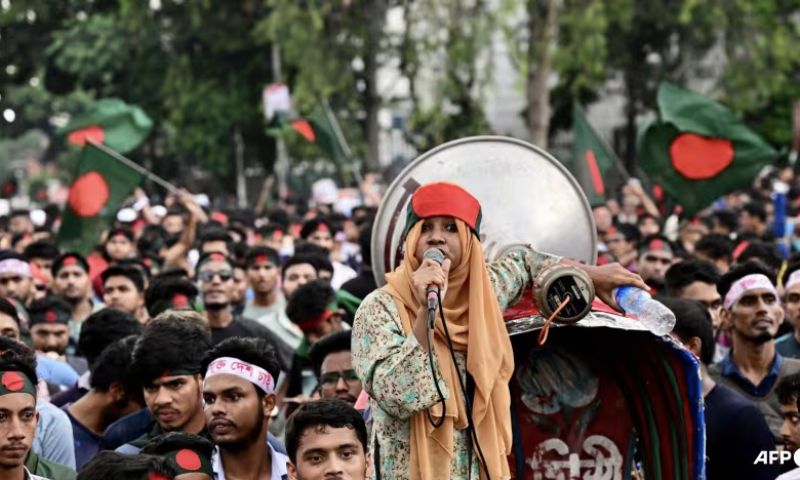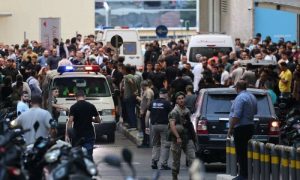DHAKA: Rival student groups in Bangladesh clashed on Monday leaving at least 100 people wounded, as demonstrators opposing quotas for coveted government jobs clashed with counter-protesters loyal to the ruling party, police said.
The violence erupted on the Dhaka University campus, where student protesters clashed over job quotas.
According to police and eyewitnesses, the clashes involved hundreds of students wielding sticks, hurling rocks, and even using weapons like machetes and iron rods. The confrontations, which lasted for hours, turned the campus into a battleground, disrupting normal activities and causing widespread panic.
“Sticks and rocks were used in the clashes,” stated Mostajirur Rahman, the local police station chief, told AFP. Masud Mia, a police inspector, confirmed that approximately 100 students, including women, sustained injuries and were rushed to nearby hospitals for treatment. Mia added that the number of casualties was expected to rise as more injured persons sought medical assistance.
The protests, which began earlier this month, initially demanded a shift from the current quota-based system to a merit-based one for government job allocations. Despite a recent suspension of the quota scheme by Bangladesh’s highest court, demonstrations continued unabated.
Nahid Islam, the national coordinator of the anti-quota protests, blamed the ruling party’s student wing for initiating the violence. “They attacked our peaceful procession with weapons, targeting both male and female protesters,” Islam lamented. He reported that at least 150 students, including 30 women, sustained injuries, with 20 in critical condition due to the severity of their wounds.
Critics of the quota system argue that it disproportionately benefits people affiliated with pro-government factions, further exacerbating social and economic inequalities in Bangladesh. The protests have also been fueled by allegations of political bias and favoritism in job allocations.
The unrest extended beyond Dhaka, with reports of violence during similar protests in Chittagong.























